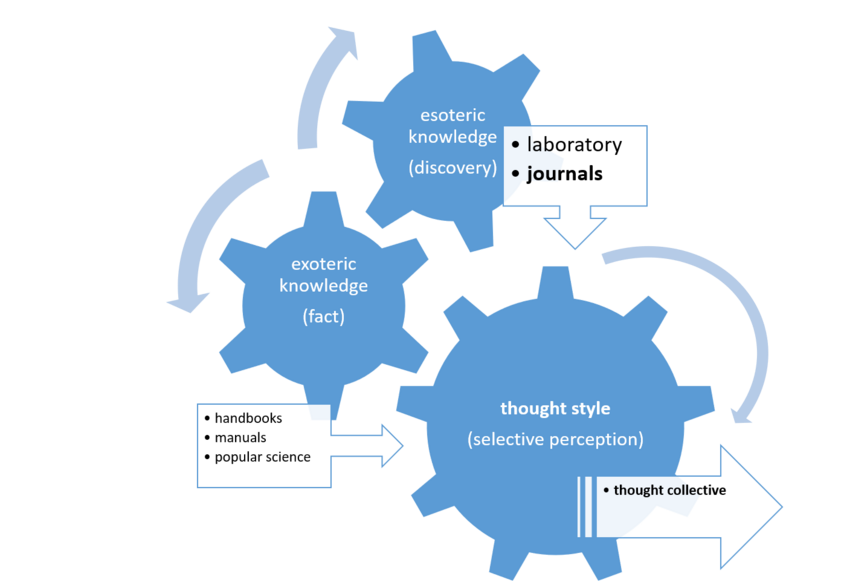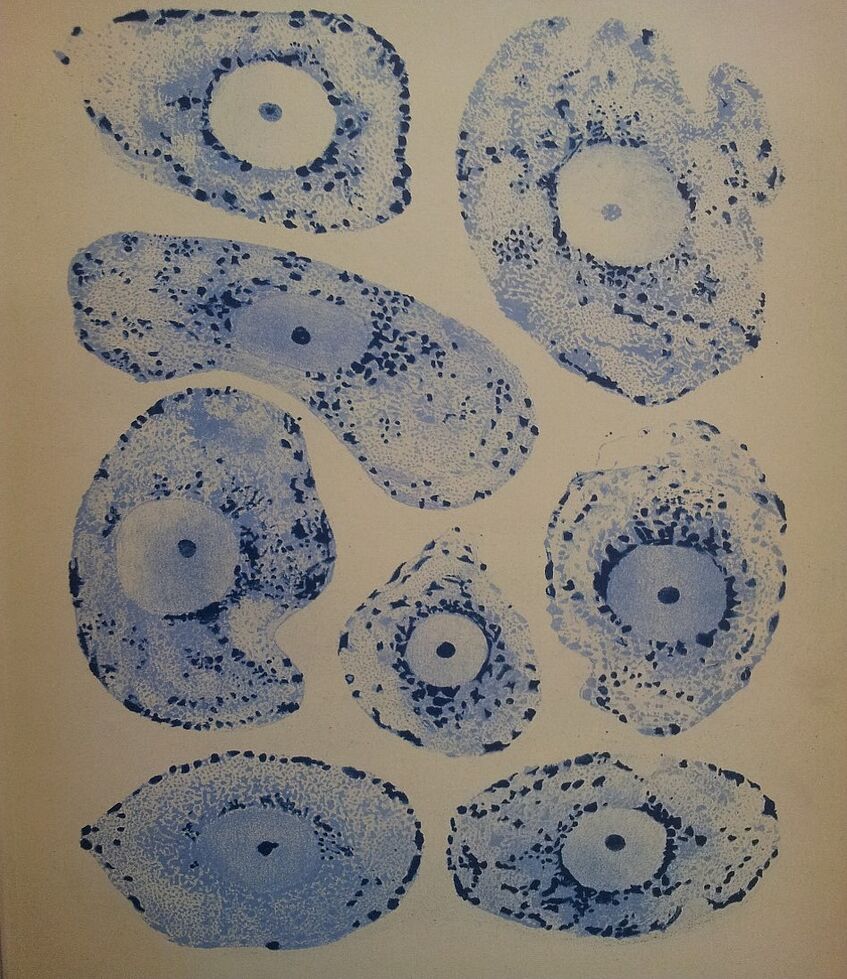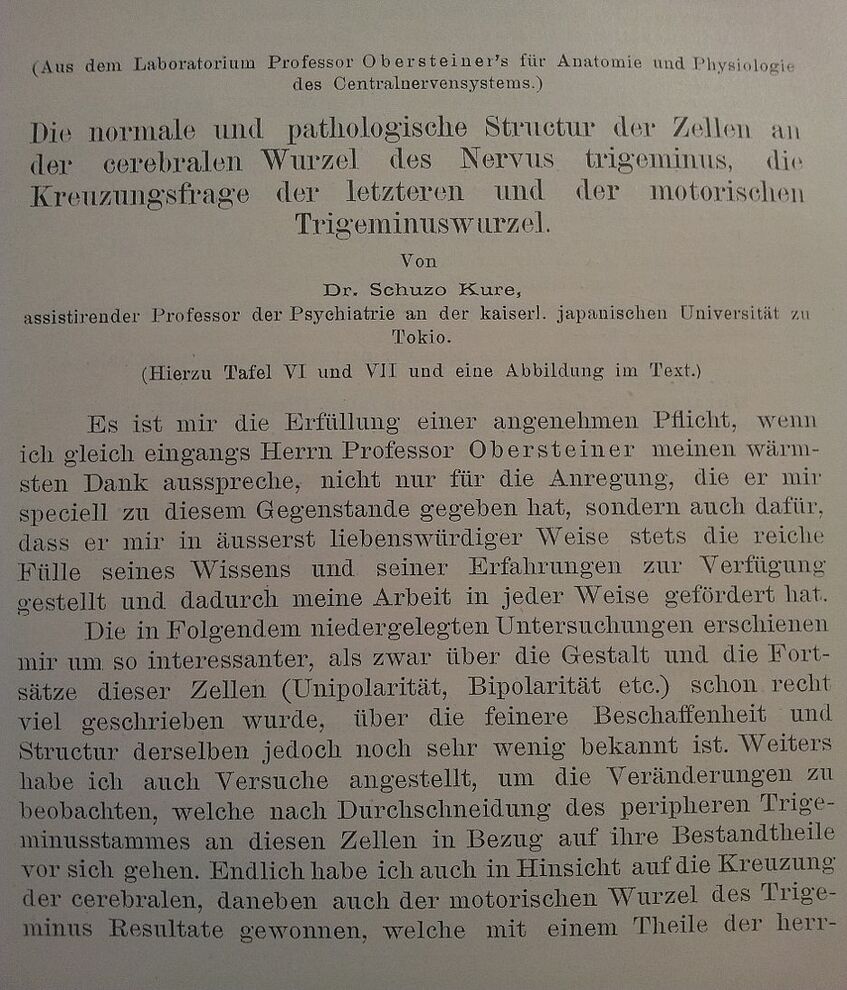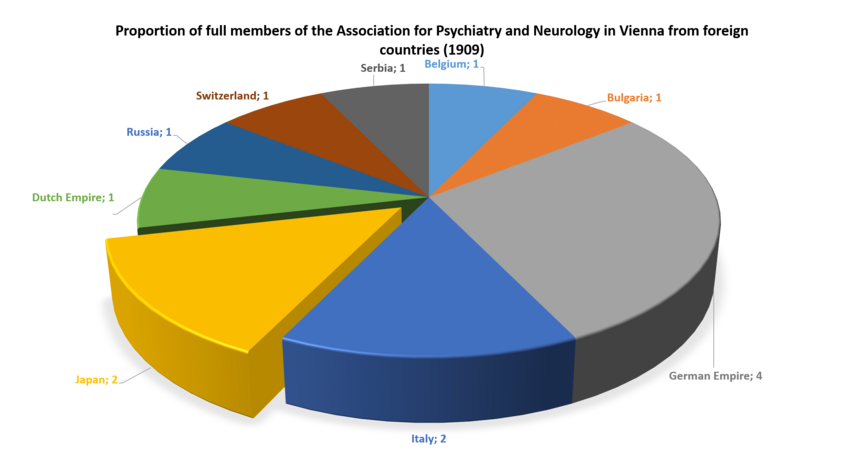A Question of Nerves
On a Transnational Neurological Thought Collective in the Making of Modern Japanese Psychiatry circa 1900
Introduction to Topic
From its introduction in the 19th century, psychiatry in Japan was heavily influenced by German medicine.
But in fact, a Viennese institution played a major role in the development of psychiatry in Japan: the world famous Neurological Institute. It provided a scientific basis for psychiatry and institutionalised neurology as a specialised medical field. This required comprehensive analysis of the CNS.
The results were published in the Papers of the Neurological Institute at the University of Vienna. A journal which would become a privileged stepping stone for Japanese scholars into dominant German-language psychiatric journals.
Corpus
- Papers of the Neurological Institute at the University of Vienna (1892-1935, 35 volumes)
- Annals of Psychiatry and Neurology
- 精神神経学雑誌 [Neurologia, Psychiatria et Neurologia Japonica]
- Folia Psychiatrica et Neurologica Japonica
What is a Thought Collective?
“Thinking is a collective activity […]” (Ludwik Fleck 1935).
A thought style emerges within a thought collective (i.e. research unit) and represents a selective mode of perception (i.e. methods). It is coproduced by…
- Esoteric knowledge: produced by small elite groups of researchers; distributed through journal articles.
- Exoteric knowledge: consists of “assured facts”; distributed through manuals, handbooks and popular science
- Esoteric science discovers phenomena, exoteric transforms discoveries into facts (chart 1)
- The affiliation to the Viennese psychiatric academic association by former Japanese scholars of the Neurological Institute is shown in chart 2 and reflects their deep involvement in Austrian medicine.
- The affiliation to the Viennese psychiatric academic association by former Japanese scholars of the Neurological Institute is shown in chart 2 and reflects their deep involvement in Austrian medicine.

Chart 1. Scientific knowledge production
Research Questions
A detailed account of the coproduction of Viennese neurology and Japanese psychiatry circa 1900 is to be conducted in the present study.
- How did the emergence of neurology inform the initial exchange in psychiatry between Austria and Japan?
- Did Viennese scientists shape the psychiatric-neurological institutionalisation in Japan and how did Japanese scholars contribute to knowledge production in Austria?
I focus on the distinctive neuropsychiatric thought style, constituted through interchange between the neurological Mecca Vienna and the evolving medical player Japan. I will take a close look at the thought collective of Austrian scientists and their Japanese colleagues.
Method
- The methodic approach centers on extracting deployed methods, implicit (tacit) knowledge and personal relations expressed in journal articles, medical monographs and private communication by Austrian and Japanese scholars.

Fig. 1. Trigeminal nerve, Kure Shuzo

Fig. 2. Paper by Kure Shuzo
Results
Through intensive neurological training and excellent connections to Vienna, Japanese psychiatrists were introduced to a distinctive thought collective featuring a neurological thought style.
Psychiatry in Japan initially developed as neuropsychiatry, which is reflected in Japanese journal titles. Japanese psychiatrists conducted neurological research in Vienna published by Austrian journals (fig. 1 and 2). This led to the establishment of the first neurological-psychiatric scientific outputs in Japan.

Chart 2. Association for Psychiatry and Neurology (Vienna)
Abstract
The huge impact of the Vienna-based neurologic paradigm on Japanese psychiatry at the brink of the 20th century can only be roughly estimated today. Every substantial research on the history of Japanese psychiatry credits the strong connection of the first generations of Japanese psychiatrists to Vienna, but a detailed account of scientific transfer in psychiatry between Austria and Japan at the end of the 19th through the beginning of the 20th century is still to be conducted. Where these inquiries end, my research will start with the following questions: How did scientific exchange in psychiatry between Austria and Japan happen? How did Viennese academic psychiatry shape the psychiatric discourse in Japan? And vice versa, was there any backlash of Japanese scientists to Austrian psychiatry? How did these transnational processes inform the establishment of the new medical-scientific discipline of neurology?
These questions open a new field in the history of psychiatry in both Austria and Japan. To answer these questions, the present study engages in two stages: First, the distinct psychiatric thought-style, which was constituted through interchange between the new Mecca of neuroscientific research Vienna and a fast-evolving medical global player like Japan, will be analyzed with methods of the sociology of sciences. The second stage will deepen this analysis by taking a closer look at the structure and form of the thought-collective, consisting of the Viennese scientists and their visiting colleagues from Japan, who ultimately embody their specific thought-style. Thought-style and thought-collective are concepts drawn from the famous polish philosopher of science Ludwik Fleck. He defines thought-style as a “directed perception”, which also includes “mental and factual processing of the perceived phenomena”. A thought-collective represents the actual agency of the thought-style, usually consisting of a group of individuals tied together by common interests and methods.
The present research aims not only at analyzing the mechanisms of knowledge-production of the world-famous Neurological Institute of the University of Vienna and its Austrian and Japanese scientists, but also at revealing the constituent character of marginalized discourse elements in psychiatric discourse at the time through close reading of Festschriften, acknowledgements in psychiatric journals and seemingly negligible forewords. This unique approach on historical medical literature from Austria and Japan will shed new light on the motives of neuropsychiatric discourse as a socio-economic agent in emerging nation states and empires, as well as on the dynamics of transnational scientific knowledge circulation.
